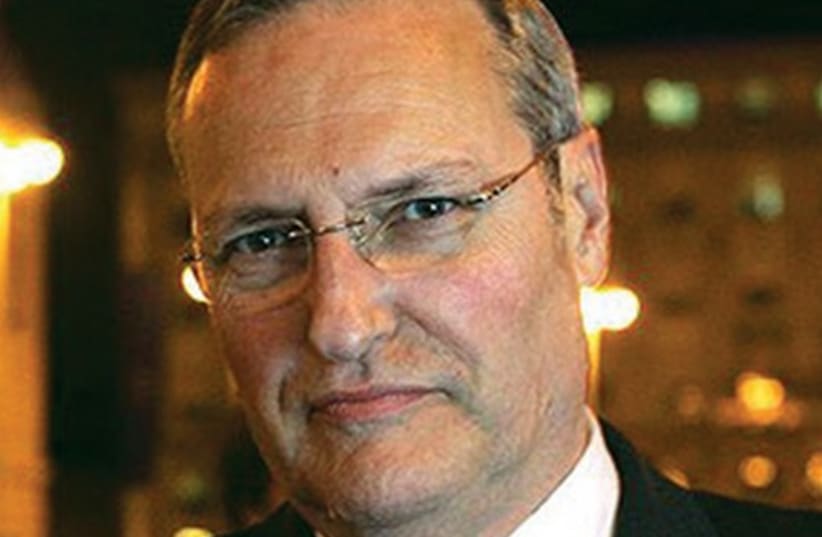The US government classifies the Islamic Revolutionary Guards Corps as a foreign terrorist organization. The promotion of business with Tehran coincides with a new German domestic intelligence report from the state of Hesse that says the Islamic Republic of Iran made efforts to obtain weapons of mass destruction in 2018, as well as conducted illicit espionage activities within Germany.US ambassador to Germany, Richard Grenell, issued a statement prior to the Iran business event. He said that “Thursday’s conference by the Maleki Corporate Group to promote trade with the Iranian regime is a dangerous move that will fund terrorism and undermine US sanctions. Iran perpetuates gross human rights abuses against its own citizens, has planned and carried out terror attacks and assassinations on European soil, and is facilitating Assad’s war crimes in Syria. Now is not the time to promote business deals that will only send euros to the regime’s coffers at the expense of the Iranian people.”Zuroff, the director of the Wiesenthal Center’s Jerusalem office, wrote on Twitter: “Ambassador Grenell is 100 percent correct. It’s time for the Germans to stop playing games with Tehran and put pressure on them rather than looking for ways to do business with them.”Fact: The #German government chose to participate in an #Iranian business promotion conference, less than a week after the regime’s attack on civilian oil infrastructure. The #Iranian regime diverts resources from its people to finance the #IRGC.
— US-Botschaft Berlin (@usbotschaft) September 19, 2019
Stop the Bomb, which seeks to end Iran’s nuclear program and improve human rights in the Islamic Republic, protested on Thursday in front of the Maritime conference center in Berlin, the site of the business conference.A German foreign ministry spokesperson confirmed to the Post that it participated in the Iran business event. Miguel Berger, the head of the Department of Economic and Sustainable Development, gave a greeting at the 8th Banking and Business Forum Iran Europe conference in Berlin,” said the spokesperson.The spokesperson said, in response to Ambassador Grenell’s criticism, that the federal government engages in “the context of the JCPOA for legitimate trade between Europe and Iran.” The Joint Comprehensive Plan of Action is the formal name of the Iran nuclear deal that aims to curb Tehran’s nuclear program in exchange for sanctions relief. The Donald Trump administration withdrew from the JCPOA last year because of its alleged flaws.Germany’s Federal Financial Supervisory Authority (Bafin) also participated in the pro-Iran business conference. When asked about the US government and Zuroff’s criticism, Oliver Struck, a spokesman for Bafin, told the Post that the agency declined to comment.Ulrike Becker, a spokeswoman for Stop the Bomb, said: “The conference on boosting business with Iran seems to be a special reward for the terrorism that is currently being inflicted by the Iranian regime in the region. The Iranian regime always pursues its goals by force: it has responded to the nuclear deal and economic concessions by reinforcing its militias in Syria. The regime is terrorizing the entire region, from Iraq and Yemen to the Israeli border.”She added that “In Iran, the regime has enormously intensified the repression of women’s rights and union activists. The German answer to this terrorism is always more trade and dialogue. However, this policy does not make the regime more moderate, but encourages it in its aggressive course. There must finally be a change of course: away from courting the regime, towards support of the democratic opposition.”Amir Amiri, a spokesman for the exile Iranian opposition group ,Iranian Secular Democrats in Hanover, said: “We see no difference between the terrorist organization IS and the Islamic terrorist regime in Iran. Both act as terrorist groups. We say ‘no’ to the warmongering regime in Iran. We say ‘no’ to the appeasement policy with the mullahs. We call for solidarity and support for the Iranian democratic opposition to the mullahs’ regime.”A Stop the Bomb video showed the Iranian dissident Kazem Moussavi calling the German Left Party MP, Klaus Ernst, a “good friend of the mullahs.”The Merkel administration declined to comment.Ambassador Grenell is 100 percent correct. It’s time for the Germans to stop playing games with Teheran and put pressure on them rather than looking for ways to do business with them.
— Efraim Zuroff (@EZuroff) September 17, 2019
